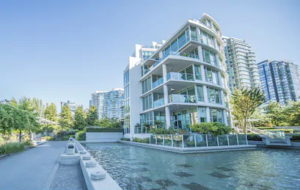The great thing about Condominiums is that it can provide a stable, amenity-induced living experience at affordable costs. For a number of people and families, condos offer a better option than renting or buying a traditional home. However, it’s important to understand what you’re getting into before you go all in. Condos are quite different from single-family dwellings that most people may be used to. Bellow will go into depth of what you should expect and prepare for when thinking about moving into a Condo.
What is a Condo?
Firstly, it’s important to know exactly what a condo is. Condos are individually sold units within a communal living complex. Majority of the time they look just like apartment buildings. Unlike apartments, however, you own your private condo unit. All the common areas, like tennis courts, game rooms, lounges or pools, are collectively owned by all the complex’s residents.
Purchasing a condo is similar to joining a Cooperative where it’s basically like you’re joining a business arrangement with all the other people who own condos/apartments in the building. Because of this, condos have their own homeowners associations. A Condos homeowners association puts rules in place to maintain the upkeep of both the building and neighbor relationships, also like a Cooperative. Each condo complex will have their own rules and restrictions. So before you get fully involved into the condo, you should be well aware of those restrictions.
What You Should Know About Buying a Condo
 In addition to a condo’s rules, you should also be aware of the condo association’s budget. That way you can know what kind of money you’ll need to contribute, as well as where the money is going. It helps to look at the budget to make sure that they’re putting enough money towards things like building repairs and overall upkeep of the building. Another important thing to look into is if an association refuses to share their budget with you, consider that a big red flag.
In addition to a condo’s rules, you should also be aware of the condo association’s budget. That way you can know what kind of money you’ll need to contribute, as well as where the money is going. It helps to look at the budget to make sure that they’re putting enough money towards things like building repairs and overall upkeep of the building. Another important thing to look into is if an association refuses to share their budget with you, consider that a big red flag.
An Important fact to remember is the association will also have a reserve fund to cover expenses that pop up like if they need major repairs done. Without the right funds in place, associations can charge owners “special assessments” to cover up costs. The older the property, naturally the less cash reserves it has, the higher the chances you’ll be hit with these charges, which no one wants.
Lastly, condo insurance differs from the homeowner’s insurance most are used to. The condo association will have a master insurance policy in place, but these will differ from building to building. You or your home inspector should review the policy thoroughly, just to make sure what you’ll know what your responsible for. You wouldn’t want to end up with repair costs that the association insurance will not cover.
